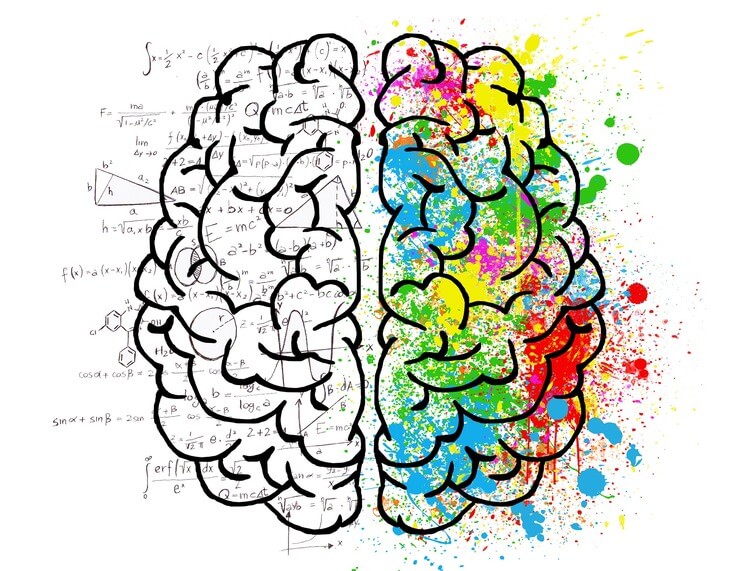Why Your Brain Is So Important To Fairness Perception And Financial Intimacy
May 25, 2022
Couples who share a strong sense of fairness are more likely to have successful and long-lasting relationships. One of the main reasons for this is that couples who perceive their relationship as fair are more likely to trust and cooperate with each other.
When it comes to money, couples need to be able to trust each other in order to make joint financial decisions. If one partner feels that they are always getting the short end of the stick, it can lead to resentment and conflict.
Couples who have a strong sense of fairness are more likely to discuss their finances openly and to make joint financial decisions that are in the best interests of both partners. This level of trust and cooperation is essential for a successful and long-lasting relationship.
The concept of fairness is also important in other aspects of our lives, such as work, school, and the legal system. Fairness is a fundamental principle that helps to ensure that people are treated equitably and that they have an equal opportunity to succeed.

Why Is The Concept of Fairness Important In Relationships?
The ability to understand and apply the concept of fairness is important in our everyday lives, especially in our relationships with others. It helps us to interact fairly with others and to resolve conflicts in a way that is acceptable to all parties involved.
Fairness is one of the foundational concepts in morality. It's also very important when it comes to money and relationships.
When we interact with others, we implicitly or explicitly agree to certain rules of behavior. These rules govern how we will behave towards each other and are based on our understanding of fairness. For example, we may agree to share resources equally, take turns, or avoid harming others. When it comes to finances we may agree to certain spending habits, a budget, or a savings plan together.
If someone breaks these rules, it can disrupt the balance of our relationship and lead to conflict. The concept of fairness helps us to resolve these conflicts by determining what is an acceptable outcome for all parties involved.
Without a shared understanding of fairness, it would be difficult to maintain relationships with others. We would constantly be in conflict with each other over what is fair and what is not. The concept of fairness helps us to interact peacefully with others and to resolve conflicts in a way that is acceptable to all parties involved.
Fairness is one of those concepts that played a key role in the evolution of humans. It was necessary for humans to have a concept of fairness in order to cooperate and learn how to share.

Brain Development And Fairness
As children develop, they begin to understand the concept of fairness. This understanding develops over time and is influenced by a variety of factors, including brain development.
Fairness Develops In Stages
The ability to understand fairness develops in stages.
When you’re having experiences as a child many of your brain structures aren’t yet online.
So the way you process the experiences with finances and relationships is very different from the way you would experience them as an adult.
In the earliest stage, infants aged 6-10 months old show a preference for individuals who share equally with others. This suggests that even at this young age, children have a basic understanding of fairness. Research even points to a desire for fairness in children as young as 2 years old.
In a short 2-year time frame a child's brain reaches 50% of adult size. This is also when primary attachment bonds are created in your relationships.
This is why therapists and coaches ask so much about your relationships with your parents. This helps to develop an understanding of how the underlying structure of your brain has developed due to these relationships and formative experiences.
Although the child’s brain is taking in so much more than it was when it was born, it’s not necessarily aware of what’s going on around it in a conscious way.
So, for example, a baby experiences clothing on their skin but isn’t aware of what clothing is. And they don’t have a symbolic representation of things like money.
Although they may have an understanding of security and safety when they feel warm and well-fed. They don’t understand how money is related to these things.
Fairness Preference Increases With Age
As you grow older your brain grows in complexity.
At the age of 2-4, your brain is 80% of adult size.
The child at this age begins to understand some things about finances. They may ask to make purchases for the first time. This is when children begin to enjoy things like getting a quarter and putting it into a gumball machine. It’s also when they begin to understand and become involved with the idea of fairness in a more individual way.
As children get older, their understanding of fairness becomes more complex. By the age of 4-5 years old, children are able to take into account factors such as need and effort when considering what is fair. For example, they may understand that it is fair to give a larger piece of cake to someone who is hungrier than to someone who is not.
This understanding of fairness continues to develop into adolescence and adulthood. As adults, we are able to take into account a wide range of factors when considering what is fair. We may consider things like someone's abilities, effort, need, and even the consequences of our actions when making decisions about what is fair.
Brain Development And Fairness
Brain development plays a role in the understanding of fairness.
The prefrontal cortex, which is responsible for higher-level thinking, begins to develop around the age of 3 years old. This area of the brain continues to develop throughout childhood and adolescence. This development helps children to understand increasingly complex concepts, such as fairness.
Environmental factors, such as parenting style and culture, also play a role in the development of the understanding of fairness. Children who are raised in environments that emphasize cooperation and sharing are more likely to develop a strong sense of fairness than those who are not. Culture also plays a role in shaping our understanding of fairness. For example, in some cultures, it is considered fair to share resources equally, while in others, it is considered fair to give more to those who have less.
While the understanding of fairness develops over time, it is clear that even young children have a basic sense of what is fair.
Fairness And Financial Therapy
In my work as a financial therapist, the topic of fairness comes up frequently.
My clients ask me "what's fair?".
This is not an easy question to answer. And often my clients are disappointed when I tell them this because they just want to be told if their partner’s (or their own) behaviors are fair or not.
Instead, what needs to happen is couples need to learn to communicate effectively about fairness. They need to learn about what has contributed to their sense of fairness (or lack of fairness). And they need to learn to foster financial intimacy so that even when things don’t feel fair, they can empathize with one another, reconnect, and communicate effectively.
In my course, The Couples Guide to Financial Intimacy we discuss the topics of communication, fairness, and how your unique brain has contributed to how you approach your partner, and your finances today.
In the course, you’ll learn to get on the same page so that you can experience deeper levels of commitment, security, and financial intimacy.
Do you think you will need more than a course, then Therapy Informed Financial Planning is for you. I invite you to schedule your free 30-minute discovery call today.
Wishing You Healthy Love and Money,
Ed Coambs,
MBA, MA, MS, CFP®, CFT-I™, LMFT
Curious About Your Attachment Style?
Take the Attachment Style Quiz now and learn how it impacts your relationships, finances, and life!



